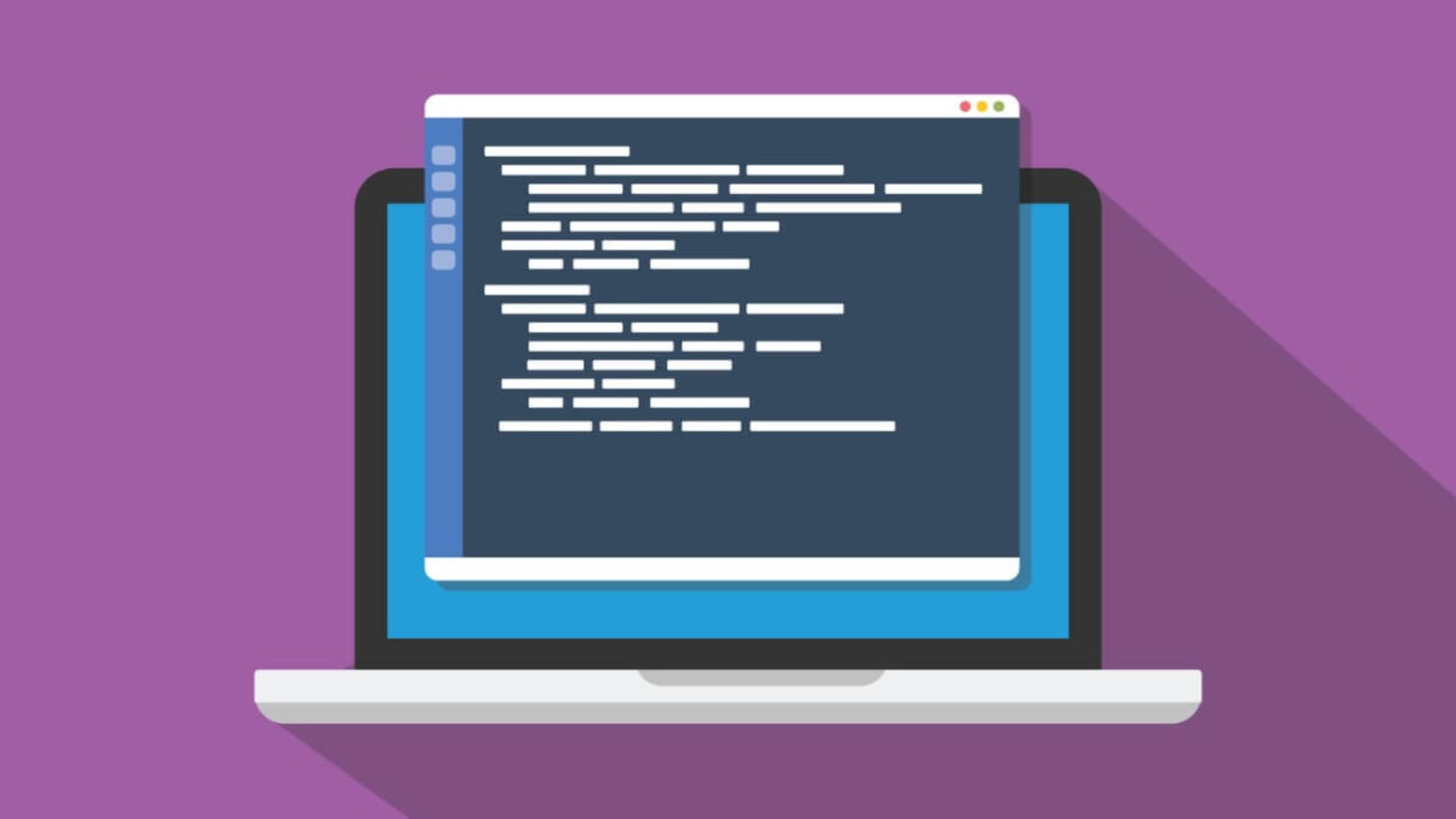- Home
- Technologies
- React
- Hire React Developers
Hire React Developers
Hire vetted React talent.
Our top 1% of tech talent has already undergone a rigorous vetting process. Get bilingual, nearshore React developers on your team within 2 weeks.
500+ companies rely on our top 1% tech talent.
No time to find the top talent yourself? Skip the hassle of recruitment.




The Ultimate Guide for Hiring React JS Developers
In today’s competitive market, hiring the right React developer can be a make-or-break factor in your project’s or company’s success. It's challenging to find an outstanding developer. For perspective, out of over 1.4 million applications we receive annually, we hire fewer than 1% of candidates.
Drawing from over a decade of React recruitment experience, we've crafted a comprehensive guide to streamline your hiring process. This guide provides insights into the technical hiring process for React developers. We’ll cover important considerations before you hire React developers and highlight key skills, interview questions, and frequently asked questions about the recruitment process. Make more informed decisions and approach tech talent acquisition with confidence and precision.
Before You Start Hiring
Project or Team Requirements
Understand the scope of your project. Is it a new application, or are you enhancing an existing system with React? The complexity and nature of the task at hand will dictate the skills and experience required. Remember to consider both short-term and long-term costs and any ongoing support or maintenance requirements.
Timeline and Budget
If the hire is for a specifed project, clearly define the duration. Do you need a developer for a permanent team or a shorter term engagement? Your budgetary constraints will also determine whether you're seeking a senior developer, a mid-level expert, or perhaps a junior developer with the potential to grow.
Niche Expertise in the React Ecosystem
React has a vast ecosystem, with numerous libraries and frameworks branching from it. Do you need someone familiar with Redux, Enzyme, or Formik? Recognize the specific tools that will be pivotal for your project.
Culture Fit
Technical skills are vital, but a developer’s ability to integrate seamlessly into your team is equally important. Consider communication style, values, and other soft skills to ensure a harmonious working environment.
Modernization
Not all React developers have equal skillsets. Some might have extensive experience with specific tools, or they might have worked in particular industries. Consider whether you need a front-end developer proficient in React or a full-stack developer capable of handling both front-end and back-end tasks.
20 Skills Every React JS Developer Should Have
In web development, React is a popular JavaScript library that powers countless digital experiences across the web. As the React ecosystem evolves, so do the requisite skills needed for mastery. Your React developer should have a wide range of skills. Not just for completing daily tasks, but also for future-proofing your software, optimizing performance, and building seamless integrations.
Hiring a developer with these essential skills translates into smoother project progressions, reduced need for oversight, and higher-quality code. Their proficiency will not only allow them to tackle immediate challenges but also preemptively address potential roadblocks, saving time and resources in the long run.
In this section, we've curated 20 fundamental skills to look for. React developers with these skills bring technical excellence to your dev team.
Technical Skills to Look for in Your Ideal React Developer
1. Mastery of JavaScript
JavaScript and ES6 form the bedrock of React. Understanding JavaScript's nuances and ES6's features ensures the construction of robust React applications, accelerating development and fostering easier collaboration.
2. Strong Debugging Skills
A React developer with sharp debugging skills and an attention to detail can efficiently identify and resolves issues, preserving application stability and reliability.
3. Knowledge of Responsive Design
Responsive web design means that web applications cater to a variety of browser sizes. Mastery of responsive techniques assures a consistent, engaging user experience across devices.
4. React Router Proficiency
React Router enables easy navigation within applications. With knowledge of the framework, developers create complex, user-friendly interfaces that provide intuitive browsing experiences.
5. Webpack Knowledge
Webpack optimizes JavaScript, CSS, and assets for web applications. Expertise in Webpack assists with efficient builds and better overall application performance.
6. Asynchronous JavaScript
With server-side interactions and API integrations, understanding asynchronous operations in JavaScript, like Promises and Async/Await, is paramount. This enhances React application responsiveness.
7. Git & Version Control
Git mastery is important for smooth collaboration, effective code management, and version tracking. Hiring a React developer skilled in Git leads to better team collaboration and facilitates organized code management.
8. React Component Expertise
Building scalable React applications demands expertise in component-based architecture and state management. A skilled developer designs reusable components. This leads to a harmonious user experience and makes scaling and maintenance more straightforward.
9. Performance Optimization Skills
A high-performing React application requires ongoing performance optimization. Techniques like memoization and code splitting, combined with an understanding of React's reconciliation, result in faster load times and smooth interactions.
10. Mastery of React Hooks
Mastery of React Hooks is crucial to React application state and lifecycle management. Harnessing Hooks allows for cleaner, modular code and faster development.
11. React Native Familiarity
Proficiency in React Native leverages React expertise into cross-platform mobile application development, extending reach and consistency across platforms. It's a valuable plus, if not a mandatory competency.
12. Redux Mastery
Redux facilitates state management in React applications. Armed with Redux, the developer creates a stable, organized, and high-performing React application.
13. Testing Expertise
Testing is critical for application quality and reliability. Developers skilled in testing frameworks like Jest and React Testing Library deliver robust, regression-resistant applications.
14. Full Stack Development Experience
A developer with full-stack capabilities is invaluable. This blended skill set enables the creation of complete solutions for web and mobile applications, such as a web application that includes a React-driven dynamic user interface, a Node.js server processing API requests, and a MongoDB database for storage.
15. Expertise in Server-Side Rendering (SSR) with React
This skill ensures faster page loads, improved SEO, and enhanced performance on mobile and web apps. Proficiency in SSR techniques allows React applications to integrate dynamic content and complex user interfaces seamlessly.
16. Proficiency in GraphQL with React
A React developer skilled in GraphQL can implement robust, flexible APIs that are more efficient and powerful compared to traditional REST APIS. This skill minimizes the data transferred over the network and streamlines data-fetching processes, which significantly improves the responsiveness and performance of React applications.
Soft Skills to Look for in Your Ideal React Developer
17. Communication & Collaboration
React projects thrive on cross-functional collaboration. Developers with strong communication skills can express technical ideas clearly, fostering efficient collaboration and building a strong team environment.
18. Problem-Solving Skills
React developers with an analytical mindset can dissect issues, optimize code, and innovate within constraints, bringing efficiency to development cycles.
19. Adaptability & Continuous Learning
Tech is ever-evolving. React developers must be adaptable and eager to learn and stay up to date. That way, they can pivot according to changing industry standards.
20. Strong Time Management Skills
React developers often need to juggle multiple tasks with tight deadlines. Effective time management ensures that they meet their goals and achieve important project milestones.
12 Questions to Identify Top React Developers
When interviewing React developers, it's important to ask questions that first assess the candidates' technical skills and knowledge. Employers will also usually conduct a coding test to further assess specific on-the-job knowledge.
Here are a few examples of technical interview questions:
The following set of questions aim to uncover not only the developer's technical knowledge but also their problem-solving abilities, teamwork, communication skills, and adaptability—all crucial traits for success in a collaborative environment.
1. What is React and how does it differ from other JavaScript frameworks?
React is a JavaScript library developed by Facebook for building user interfaces. React focuses mainly on the view layer, making it more flexible. This allows developers to integrate it with various backends and other libraries. One of the primary differences between React and many other frameworks is its use of a virtual DOM, which optimizes rendering and improves performance.
2. What are the key features of React?
Some of the key features of React include:
- Virtual DOM: React creates an in-memory data structure cache to track changes and then updates the actual DOM efficiently.
- Component-Based Architecture: React applications are made up of reusable components, promoting clean code and modularity.
- One-way Data Binding: With the use of "props" (properties), React promotes unidirectional data flow, which enhances predictability and simplicity.
- Hooks: Hooks allow developers to use state and other React features without having to write a class.
- JSX: An XML-like syntax extension for JavaScript, making it easier to write React components.
3. What is the purpose of JSX in React?
JSX stands for JavaScript XML. It's a syntax extension for JavaScript that looks similar to HTML. In React, JSX provides a more readable and expressive way to write UI components by mixing HTML with JavaScript. It essentially allows us to describe our UI in a declarative manner within our JavaScript code. Behind the scenes, JSX compiles down to standard JavaScript function calls, ensuring it doesn't add runtime overhead.
4. Explain the concept of state in React.
In React, "state" refers to the data that determines how a component renders and behaves. Think of it like the settings or preferences for a particular part of a web page. If you change the settings, the appearance or behavior of that part might change. For instance, if you have a light/dark mode toggle on a website, the "state" would store whether the mode is currently light or dark. When you switch modes, the "state" updates, and the website's appearance changes accordingly. This ability to react to data changes makes websites built with React feel responsive and interactive.
5. Why did you choose to specialize in React compared to other frameworks or libraries?
This can shed light on the candidate's motivation and technical background.
6. How do you ensure that your React applications are performant and user-friendly?
This addresses the candidate's awareness of end-user experience and application optimization.
7. How do you handle feedback, especially when asked to make changes to your code or approach?
This can shed light on the candidate's motivation and technical background.
8. Have you ever worked in a multi-disciplinary team with designers, backend developers, and other stakeholders? How did you ensure smooth collaboration?
This addresses the candidate's awareness of end-user experience and application optimization.
9. Can you describe a challenging project you worked on using React? What were the challenges and how did you overcome them?
This gives insight into the candidate's problem-solving skills and hands-on work experience.
10. What are some tools or practices you use to test your React applications?
Understanding their testing methodologies can provide insights into their commitment to quality.
11. How do you keep yourself updated with the latest updates in React and its ecosystem?
This gives insight into the candidate's problem-solving skills and hands-on work experience.
12. Can you describe a time when you had to make a trade-off between perfect code and meeting a deadline? How did you handle it?
Understanding their testing methodologies can provide insights into their commitment to quality.
Frequently Asked Questions (FAQ)
Is React software development in demand?
Yes, React software development is in high demand. According to a recent survey by Stack Overflow, React was ranked as one of the most popular frameworks among developers, indicating its widespread adoption and the demand for skilled full-stack React developers.
How do you write a React developer job description?
When crafting a job description for a React developer, specify the necessary technical and soft skills you’re looking for. Additionally, outline key responsibilities, job benefits, experience level, academic and professional background, and so on. See how to write an engaging React job description.
How does BairesDev assess a developer’s React expertise?
We assess candidates through a lengthy and rigorous vetting process. This includes technical evaluations, hands-on coding tasks, and in-depth interviews by seasoned professionals. This exacting process guarantees that our React developers have not only the necessary technical know-how but the interpersonal skills as well to succeed in the role.
What’s the average annual salary of a mid-level React developer?
The salary of skilled mid-level React developers varies by location, tenure, and company size. For instance, in the US, the average pay is between $80,000 and $120,000 per year. Meanwhile, salaries for nearshore developers might be more competitive. In addition, remote React developers' compensation may differ based on their geographic location.
What types of React developers can I hire through BairesDev?
We only provide clients with the top 1% of React developers in LATAM. These React developers have, on average, 10+ years of experience. They’ve built software for companies of all sizes, from startups to the Fortune 500.
How do I differentiate between a junior vs. senior React developer?
Junior and senior React developers can be distinguished by their depth of experience, range of knowledge, and leadership qualities.
- A junior developer typically has 1-3 years of experience and a foundational understanding of React's core principles.
- They often need guidance with complex problems and primarily focus on making things work, sometimes overlooking best practices or efficient patterns.
- Their roles are more individually focused, and they are still honing their soft skills and problem-solving capabilities.
On the other hand:
- A senior React developer generally boasts over 5 years of dedicated experience and possesses an in-depth knowledge of the React ecosystem, including advanced patterns and performance optimization techniques.
- Senior developers autonomously tackle intricate challenges, consistently adhere to best coding practices, and play pivotal roles in guiding junior developers and making architectural decisions.
What should I consider when hiring React developers?
When hiring React developers, consider whether your project would benefit from in-house talent or if React development outsourcing is a better fit. Outsourcing can provide access to a broader talent pool and flexibility in scaling your team. Ensure you have a clear understanding of your project needs and choose developers with the right experience and skills to match those requirements.

- Hire React Developers
How Businesses Can Overcome the Software Development Shortage
BairesDev Ranked as one of the Fastest-Growing Companies in the US by Inc. 5000











